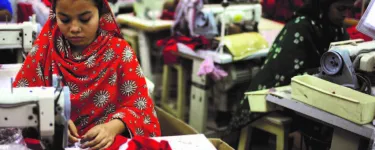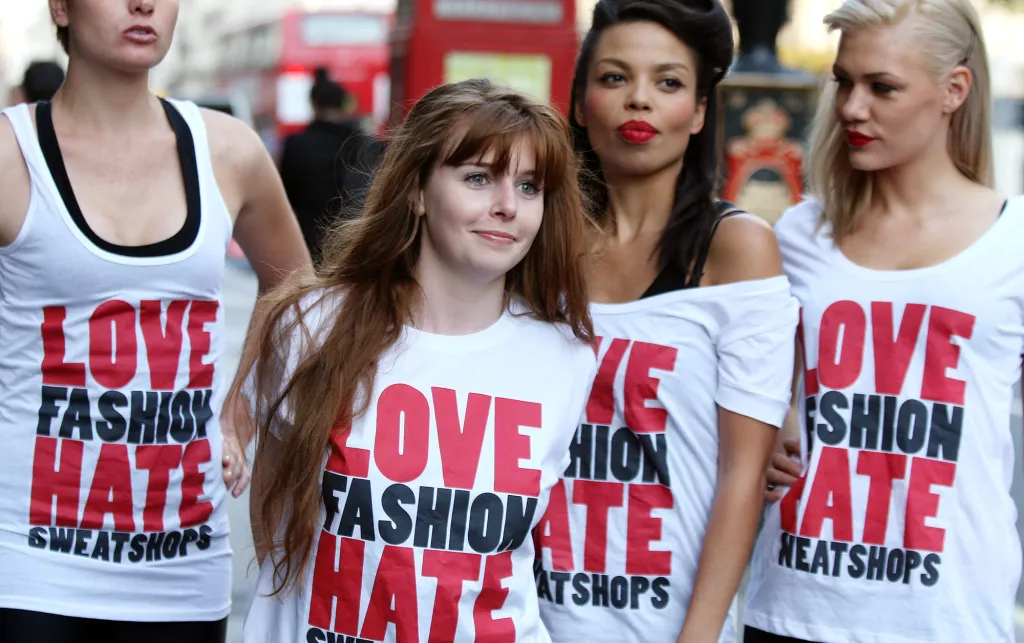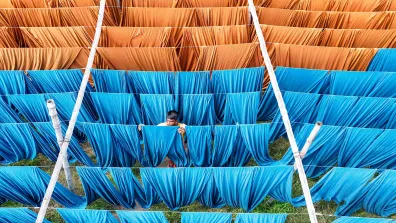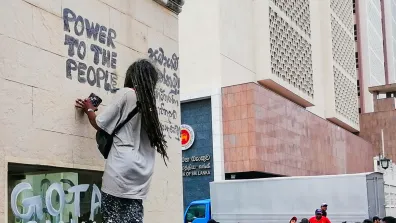Fashion victims – the facts

Factories across many of the world's poorer countries produce clothes for retailers on the UK high street. Workers struggle to survive on extremely low pay, suffering appalling poor working conditions, excessive hours and are denied basic trade union rights.
In Bangladesh over three million people, 85% of whom are women, work in the garment industry. Our 2011 report Stitched Up into conditions in the garment industry found:
- A garment factory helper’s wage starts at just £25 a month, with sewing operators earning just £32 a month – far below a living wage
- 80% of workers work until 8pm or 10pm, after starting at 8am – in excess of the legal limit on working hours
- Three quarters of the women workers we spoke to had been verbally abused at work and half had been beaten
Our 2010 report, Taking Liberties, shows that the garment industry in India is deeply reliant on the sweatshop model of production and exploitation.
- Factory helpers were paid £60 a month, less than half of the living wage
- Workers at some factories worked up to 140 hours of overtime each month, working until 2am
- 60% of workers were unable to meet production targets – in one factory the target for each worker was to produce 20 ladies shirts every hour
We had previously reported on the disgraceful treatment and low pay of workers in Bangladesh, making clothes for Primark, Asda and Tesco, in our acclaimed Fashion Victims report in 2006. Two years on, UK retailers had still not improved the conditions in their supplier factories. In fact, given the damaging effects of the global food crisis, workers were in an even worse position than they were before.
For too long the UK government has supported purely voluntary initiatives for improving the rights of overseas workers. But there have been few steps taken to improve workers’ rights, pay or working conditions within these mechanisms.
Retailers cannot continue to pay lip service to corporate social responsibility whilst engaging in buying practices that systematically undermine the principles of decent work. War on Want will continue to hold to account those UK companies that exploit workers for their own profit.
Ultimately, however, the UK government must act to regulate the operations of its companies, both in the UK and overseas.

Love Fashion, Hate Sweatshops
We love fashion. But the clothes we buy in the UK come at a terrible cost. Millions of workers around the world, mainly women, suffer poverty wages and exploitation producing cheap fashion for our shops. This can't go on. We demand a fashion industry that respects workers' rights. Our government must act now to protect the people who make our clothes.
War on Want's research on the sweatshop conditions facing the workers who make our clothes has made front page news and attracted attention nationwide. Yet in spite of widespread awareness of the issue, it is not always clear what practical steps we can take to end sweatshop labour. Asking companies to regulate themselves hasn't worked. Boycotts have only led to further job losses.
Sustainable change can only be achieved through legally binding regulation that protects the rights of workers supplying the UK high street. We are demanding that the government regulate the business practices of UK retailers to ensure that overseas workers are guaranteed a living wage, decent safe working conditions and the right to join a trade union.
To get there, it is important we highlight how brands and retailers fail the workers who make our clothes – like the 1,127 people, mainly female garment workers, who died in Bangladesh making clothes for the UK and high street – and hold them to account for their actions.
Ending the exploitation is a big job – change won't come overnight. But it's also a necessary one. Together we can end the injustice of sweatshops, and ensure the dignity of workers everywhere.


